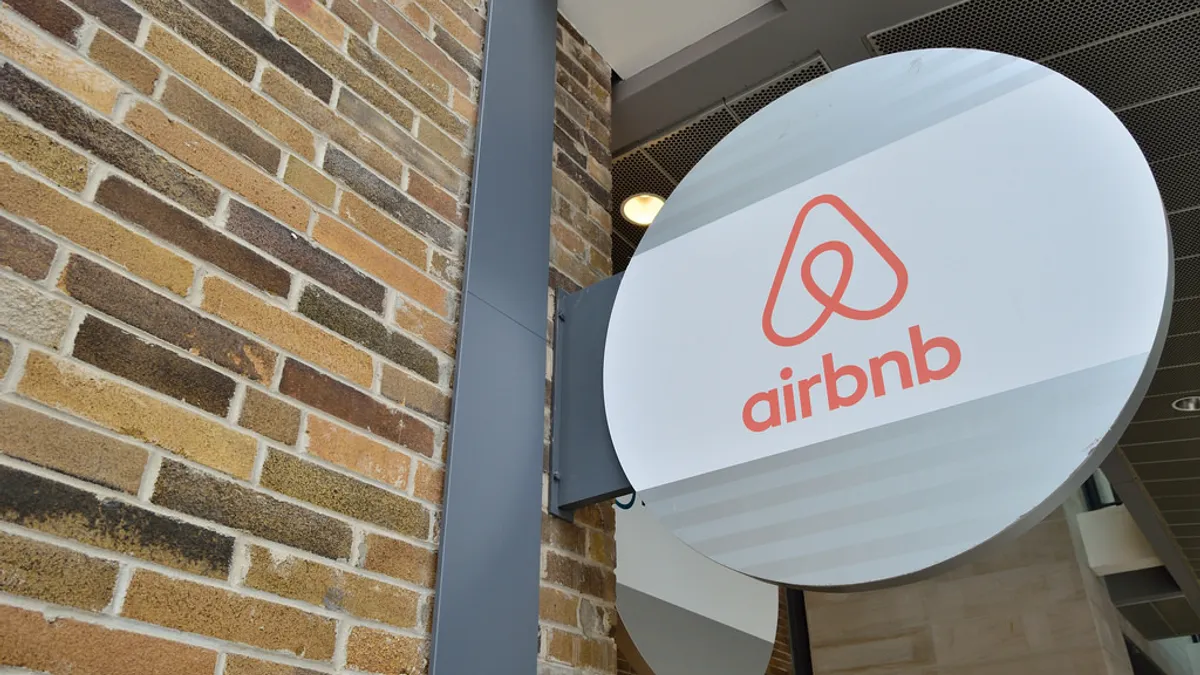Dive Brief:
-
The Dallas City Council recently voted to create a task force that will study how the city regulates short-term rentals like Airbnb, a City of Dallas spokesperson told Smart Cities Dive via email.
-
The Quality of Life, Arts and Culture Committee voted to establish the task force after reviewing short-term rental regulations in Dallas and other cities. The group is particularly interested in understanding the effects of short-term rentals on "neighborhood quality of life," the spokesperson wrote.
-
Currently, short-term rental owners in Dallas must register with the city, but many owners do not comply with those rules and the city does not have a way to hold those property owners accountable. Around 400 of the approximately 1,200 short-term rental properties are registered, the Dallas Morning News reported.
Dive Insight:
Dallas is one of many cities struggling to get a handle on the lack of regulations surrounding short-term rental properties, particularly Airbnbs. The industry has come under scrutiny by cities in recent years amid a series of complaints about the industry's contribution to concerns like noise, safety, rising rents and a reduction in single-family homes.
"Airbnb has and will continue to work closely with the City of Dallas on regulations that allow the city to fully benefit from home sharing, while providing hosts with clarity as to the rules," a company spokesperson said in an email statement to Smart Cities Dive.
New Orleans is one city that has passed a series of strict short-term housing regulations. The city council passed updated regulations in December, limiting the rentals in residential neighborhoods to owner-occupied properties and completely banning the properties in the Garden District and most of the French Quarter, Nola.com reported. Airbnb, however, has argued that the short-term rentals can help reduce the city’s need to build hotels and keep up with its tourism demands.
In Boston, Airbnb recently had to remove all listings from the platform that were not registered with the city. Boston's new regulations were created to ban residential units from being used only for short-term housing, which has been linked to pushing long-term residents out of their neighborhoods, CNBC.com reported.
Airbnb has also worked directly with cities to get ahead of these issues by creating a hotline for mayors and city officials to connect directly with company representatives. The hotline was in part created to help cities deal with rule-breakers or "party houses" that were banned last year following a Halloween party hosted at an Airbnb in Orinda, CA, where five people died.
The company has also worked with cities by teaming up with San Jose, CA homeowners on a program to rent homes as free temporary housing following a natural disaster. The program expanded on the company's Open Homes program, which was inspired by a Brooklyn, NY resident who offered up their home after Hurricane Sandy hit the east coast in 2012.
Similar efforts to work with city officials can likely be expected from Airbnb in the coming year as the company reportedly prepares to go public.












